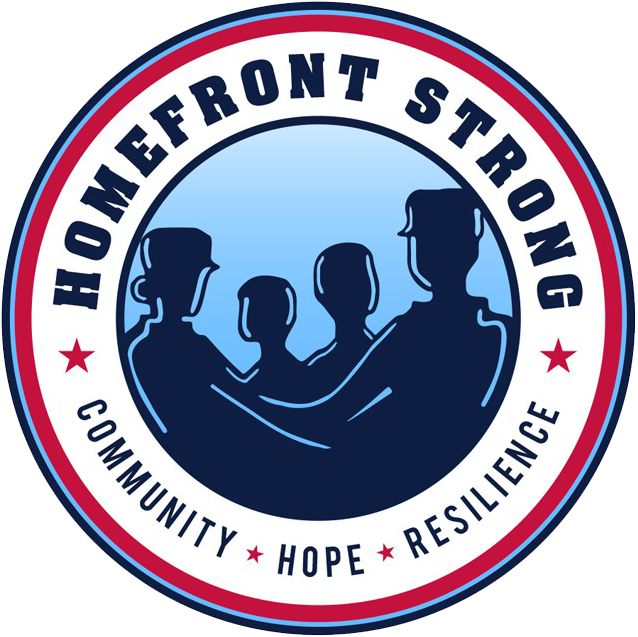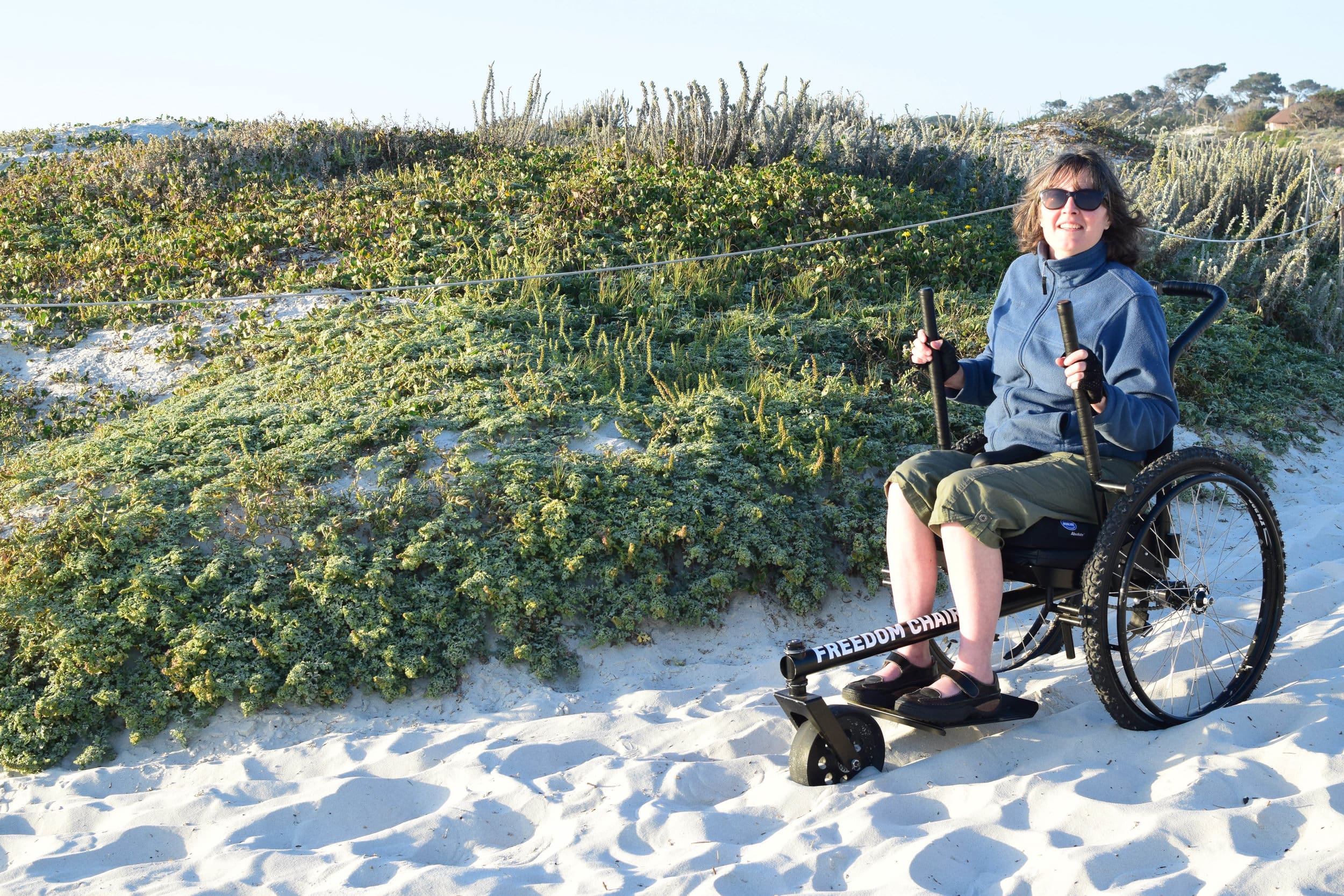A Freedom Chair in use on a sandy trail. Photo courtesy GRIT.
Bobby Curley knows nature heals. He’s seen it heal others and it has healed him.
Curley is an Army veteran who served in the Army’s 10th Special Forces, home-based in Ft. Devens, Mass. His theater of operations was in Europe, “paratrooping with crazy Norwegians.” He’s also a thru-hiker of the Appalachian Trail, more than 2,000 miles from Maine to Georgia. He fell in love with hiking, with trails and with the way they made him feel — refreshed, calm yet invigorated, and healthy.
He wants to help other veterans capture that feeling, even if their mobility isn’t what it used to be. He’s bringing a Freedom Chair and his therapy dog Celtz to Welcome Home Place Saturday, Feb. 23. Welcome Home Place is a veterans resource center hosted by The Brookfield Institute’s Care for the Troops program. This month’s gathering will be from 9 to 11 a.m. Saturday, Feb. 23, at Holyoke Community College’s E2E Center, 79 Main St., in downtown Ware.
“We want vets together on the trails,” Curley said. “Any veteran is welcome … to be a part of this. I’ve seen this personally. Veterans, torn up inside, after about two hours out on the trail, they’re not thinking about why their brain wants to explode. It’s so simple.”
Curley has worked for years, transforming the trails in the Quabbin region through the North Quabbin Trails Association, where he is the president. He started as as a stewardship specialist, moved onto building trails and has progressed to fund development and outreach. His main goal has always been to get more people onto the trails, a network encompassing and now named the Q+M Experience, 240 miles with 40 overnight shelters that connects central Massachusetts to New Hampshire. He and his colleagues have been working to make the trail fully accessible — to equestrians, bikers, geocachers, paddlers, fishermen and, especially close to Curley’s heart, veterans.
Enter the Freedom Chair
Curley understands not all veterans, or even all people, are able to hike and climb, but he doesn’t want that to prevent them from enjoying the trails. Three years ago, while at the North Quabbin Garlic and Arts Festival in Orange, he met some representatives from GRIT. GRIT, based in Medford, Mass., has developed the Freedom Chair. A handful of MIT graduates worked for years on a design for a wheelchair that could work on multiple terrains, from the bumpy dirt roads of East Africa to the rugged trails of the United States.
Download a Freedom Chair flyer.
“Typically, we would work with recreational rehab organizations” on the design, said Ben Judge, chief technical officer of GRIT. They worked to make the Freedom Chair lighter, more effective offroad, higher quality, customizable and able to break down to fit in a small car. “We were also getting helpful input — and thus better improvements — from a growing MS population and the more active post-9/11 veterans alongside the Vietnam veterans as they came up against mobility challenges later in life.”
The current incarnations of the Freedom Chair are huge hits with everyone who uses one, agreed Curley. “I’ve probably taken out a dozen veterans,” he said. “Eight were skeptical, all 12 loved it. I want 1,000 vets in these Freedom Chairs.”
So NQTA and GRIT worked together to find ways to get all those veterans into Freedom Chairs and came up with a wonderful plan. GRIT now has a contract with the U.S. Department of Veteran Affairs.
“GRIT has been validated by the VA as a qualified vendor, and as such we have a contract number so VA hospitals can purchase a Freedom Chair for a veteran,” said Judge. “A veteran needs to work with his or her VA hospital to do this. Typically, this process also involves demonstrating that the equipment works for them, and having used a Freedom Chair in a trial goes a long way for that case.”
Try one on
That’s where Curley can help. He has a Freedom Chair he’s eager to let veterans try. He’ll bring it to the Feb. 23 gathering of Welcome Home Place, He also hosts Freedom Chair Adventure Days and is happy to provide maps and literature to anyone eager to learn more. Once a veteran decides the Freedom Chair is good idea, he or she can ask for funding at their VA clinic or hospital.
“It also helps if the care providers are familiar with the veteran and their needs and have previously worked with their VA hospital to cover other equipment, like their everyday chair or other sports equipment,” Judge said. “Depending on the situation, veterans can have up to two or three pieces of mobility equipment covered every five years, but it is at the discretion of the caregiver at each VA hospital.”
Judge is thrilled with the response the Freedom Chair has gotten from vets who have tried one or who own one. Jenae Garey, the first veteran from Massachusetts to receive a chair, is a Marine veteran who serves as the NQTA board member and veterans outreach director. She takes the chair on the Freedom Chair-accessible trails every chance she has. And Judge says, “unbeknownst to us until recently,” an Air Force veteran who was one of GRIT’s first customers, has been completing ultra marathons, rolling through all sorts of conditions. “He’s really putting his Freedom Chair through the wringer and it’s still kicking.”
Join us at Welcome Home Place from 9 to 11 a.m. Saturday, Feb. 23, at Holyoke Community College’s E2E Center, 79 Main St., in downtown Ware. For more information, email Beverly Prestwood-Taylor, executive director of The Brookfield Institute, or call 413-563-7282.



